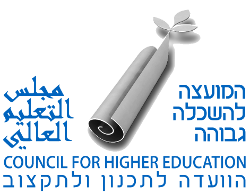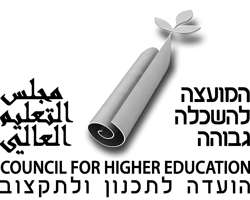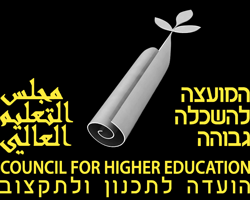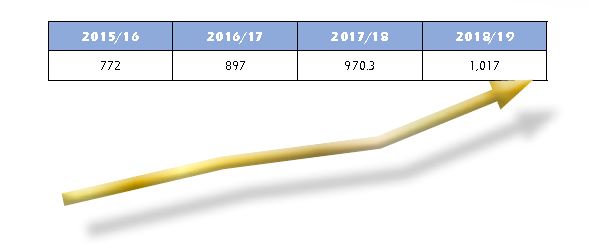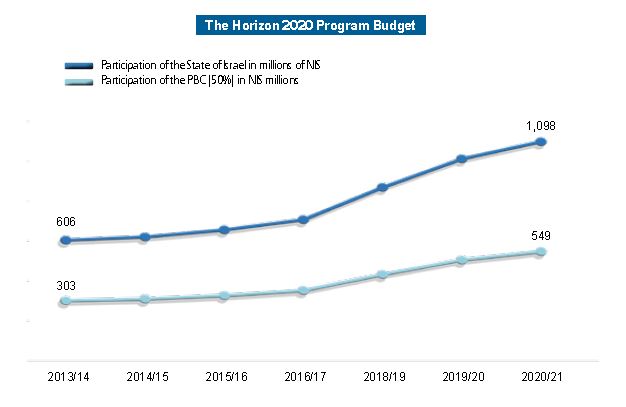The research foundations that are budgeted [financed] by the PBC are the backbone of basic competitive research in the State of Israel. In the multiyear plan for the years 2017/18-2021/22, there has been asignificant increase in the budgets for the research foundations provided by the PBC, with the goal of allowing researchers to reach significant achievements and promote Israel’s scientific standing around the world. In this context, we emphasize that according to the Shanghai rankings (2018), the Hebrew University and the Technion are ranked among the 100 best universities in the world. Similarly, Israeli research universities also lead in other international rankings.
Incremental Increase of 50% in the Israel Science Foundation Budget
The multiyear plan to reinforce research infrastructures includes an incremental increase of 50% in the Israel Science Foundation budget. The core budget of the fund in 2021/22 will be, at the end of the multiyear plan, approximately NIS 570 million per year and the entire budget will be approximately NIS 700 million per year.
These budgetary supplements are intended, inter alia, to increase the number of grants and amount of the research grants, as well as to expand the incentives they include, such as: Encouragement of research with international partners and special research programs, including: personalized medicine, quantum medicine, etc. We note that more than 95% of the Foundation’s activities are financed from PBC funds.
Increase in the BSF-NSF Program Budget
The BSF-NSF Program began operating in 2013 with the purpose of encouraging research collaborations between Israeli researchers and American researchers. This is a prestigious program for grants in a line of areas of research, including: exact sciences, engineering and computer science, natural and life sciences, earth and environmental sciences, economics, psychology, etc.
In the coming years, we expect an incremental increase of approximately 60% in the budget for the BSF NSF Program such that at the end of the multiyear plan (2021/22), it will stand at NIS 38 million per year. The program’s budget will make it possible to significantly increase the number of research grants financed by the Foundation, expand the variety of areas of research, and reinforce the collaboration between American and Israeli scientists.
Increase in the Horizon 2020 Budget
In 2014, the EU’s Horizon 2020 Program commenced and will continue until 2020. The program’s scope is expected to stand NIS 77 billion for the duration of the 7 year program . Israel’s share in the European R&D programs was determined according to the ratio of the Israeli GDP to the total European GDP (including Israel) and is financed in the following manner: PBC – 50%; Ministry of the Economy – 35%; Ministry of Science – 10%; other relevant ministries – 5%.
In the past few years, there has been an increase in the Israeli GDP in relation to the total European GDP. Additionally, the scope of the European program has been expanded. As a result, the State has been required to significantly increase its participation in the program which translates into an increase in the participation of the financing entities. Accordingly, the PBC’s share of the financing of the program increased from approximately NIS 330 million in 2015/16 (actual) to approximately NIS 520 million in 2018/19 (budgeted).
